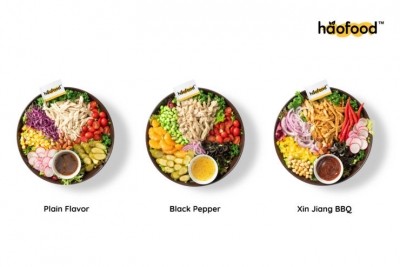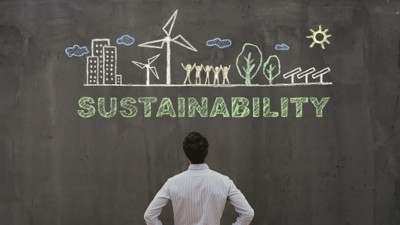Blue carbon power: South Korea’s PhytoCo drilling down into health and sustainability with government backing

PhytoCo specialises in healthy food innovations based on the flowering marsh plant Salicornia (glasswort). The firm is best known for its development of plant-based healthier salt alternative PhytoSalt and cereal-like superfood product PhytoMeal for use in bakery products and pastas.
PhytoSalt made waves as the world’s first plant-based salt with 40% less sodium content than regular table salt, whereas PhytoMeal boasts 40% less calories than regular wheat flour as well as 13 times the calcium content of milk.
Previously PhytoCo focused strongly on the undoubtable health benefits of its products for its marketing, but it has recently also opted to include the sustainability aspect, and found great success in doing so.
“The Korea Agro-Fisheries & Food Trade Corporation has recently selected our products as one of its preferred ‘carbon-negative foods for a low-carbon diet’, an honour for us,” PhytoCo CEO Duke Kim told FoodNavigator-Asia.
“Currently in South Korea, there is a lot of focus on efforts to achieve carbon neutrality to address climate change by reducing the carbon footprint of making products, including food products – PhytoCo’s products are made using our Nature-based Solutions (NBS) method which is both eco-friendly and sustainable, and using these in food products can help to reduce carbon footprint.
“The cultivation of Salicornia in and of itself can help to mitigate climate change as it is considered a Blue Carbon method – Blue Carbon refers to the absorbed carbon stored in the soil and biomass of plants living in coastal ecosystems such as Salicornia.
“This Blue Carbon can be considered a high-grade ‘gold mine and is an opportunity that is much more accessible in the short-term (due to its fast growth and easy cultivation) at around just 120 days, compared to Green Carbon, which is more long-term as it takes an average of 15 years for trees to reach the age for average carbon storage capacity.
“Studies have shown that the annual carbon sequestration of Salicornia is 39 times more than that of 20-year-old pine trees, and 19 times more than that of 20-year-old oak trees; and on average that Blue Carbon ecosystems can remove 10 times more CO2 from the atmosphere than green carbon, and store 10 times more carbon than tropical rainforests.”
Korea Agro-Fisheries & Food Trade Corporation President Kim Chun-jin acknowledged the significance of PhytoCo’s innovation with Salicornia as an important addition towards the country’s 2050 carbon neutral goals.
"Eco-friendly new food materials such as Slicornia are key to solving the many challenges that the food industry faces,” he said at a site visit to PhytoCo.
“This can be considered the blue ocean of the future food industry and as we strive to build an increasingly more sustainable food industry ecosystem, we will provide more fostering and support [for this sector] to grow.”
Cost-saving carbon negativity
All in all, products such as PhytoSalt and PhytoMeal are considered carbon negative due to the usage of Salicornia as the base ingredient – and such benefits are transferable to all food products made with these, both from a sustainability and cost standpoint.
“All food products using PhytoSalt or PhytoMeal can reduce their carbon footprint or achieve carbon neutrality, or even negative emissions,” Kim added.
“With the government [having enforced carbon taxation as well as the Emission Trading System (ETS) in South Korea, lowering the carbon footprint can help food product manufacturers to potentially help reduce or avoid carbon taxes or carbon border taxes altogether.”






















